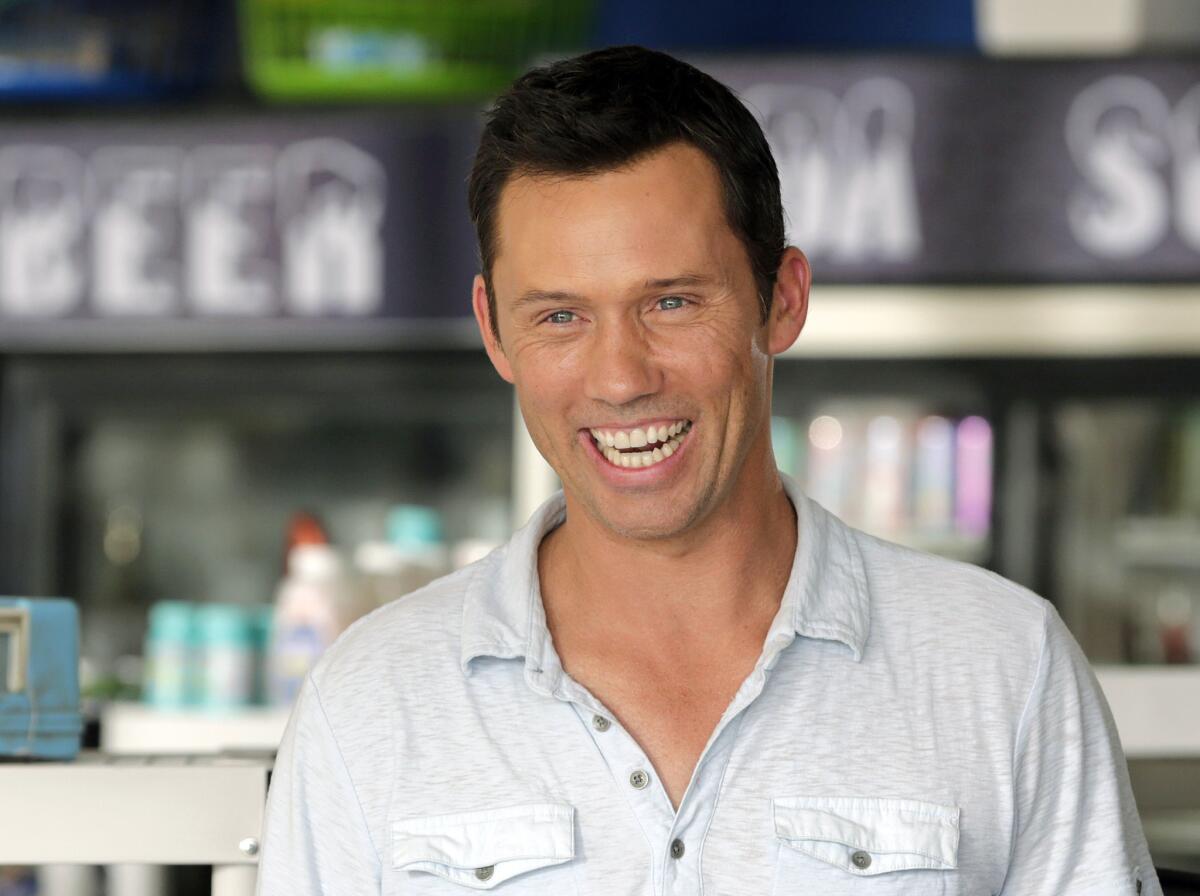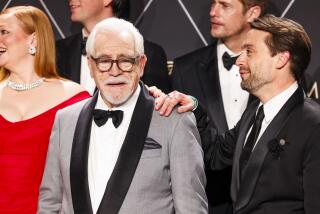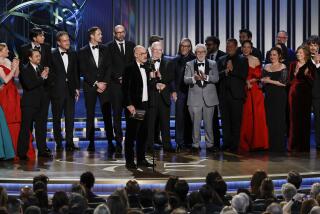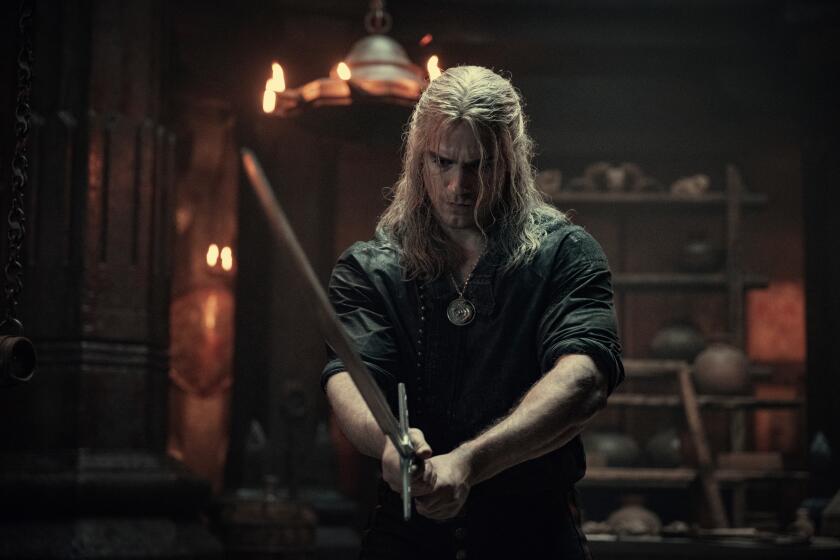Matt Nix, Jeffrey Donovan, Sharon Gless dish on ‘Burn Notice’ finale

The series finale of “Burn Notice” will air on Thursday night, and when it ends so will the life of one of the show’s main characters. That’s all USA will say in advance of the highly anticipated episode titled “Reckoning.”
The show follows the dangerous adventures of burned spy Michael Westen (Jeffrey Donovan) and his rag-tag group of spy friends as they use their super-human detection skills to solve mysteries and crack international cases. At the core of the show is its humanity as Westen negotiates his difficult relationship with his troubled mother Madeline, played by Sharon Gless.
The final episode finds Westen in the toughest position of the series. He has betrayed all of his friends and seemingly turned his back on his own sense of morality as he plunges deep into the heart of a terrorist network.
INTERACTIVE: Fall 2013 TV preview
In its seven years on air, “Burn Notice” has been a smash hit for USA. In 2009 it became the most-watched scripted series ever on basic cable in the coveted 18-49 demographic. It was also nominated for multiple Emmys over the years.
The Times’ caught up with creator Matt Nix and lead actors Donovan and Gless to talk about why the show was so popular with fans over the years and how it feels to say goodbye.
Q: How did it feel shooting the final episode after seven years?
Matt Nix: It’s bizarre. For me it’s been this long series of goodbyes where you sort of wrap the last writer’s room, and then you write the last outline and then the last script. And then there are the nitty gritty details: the last tech scout and the last looping session, but the truth is they’re all emotional. It’s embarrassing how you end up choking yourself up as you work on the script.
Q: What do you think it is about “Burn Notice” that kept fans hooked for seven years?
Jeffrey Donovan: Nudity. The gross nudity that we have on every week.
Sharon Gless: Smart scripts and good actors. And surprises and children learning how to make bombs at home. Something to offer everybody. I said to Matt, ‘There are children watching this show and you’re going in for close ups on bomb-making,’ and he said, ‘I always leave out one ingredient.’ ”
MN: In talking to people about the show, the most common comment is that people watch it with their families. And I think the reason for that is because it depicts a family. Look at the way the actors came together and portrayed this odd, interesting family. I think that’s a lot of people’s connection to the show — it feels like a group of friends that cares about each other and has conflicts but that in the end will stand by each other.
JD: Matt I was just gonna say “me.” But there is no “me” in “family.”
MN: People’s real experience of family is that it’s work. Their real experience of relationships and marriage is that it’s work. And it’s interesting because by the final episode pretty much everyone has betrayed everyone on this show. But there is always this opportunity for redemption and moving apart and coming together, and I think that’s people’s real experience of relationships and life.
PHOTOS: Celebrities by The Times
Q: How did your characters develop over the course of seven years, and did their development affect your own personal development?
SG: I don’t know how it affected me in my real life, except I made wonderful friends. Jeffrey Donovan is my son for life off the set, but Matt is the one who helped me with my character. He helped her to grow. When she was first written, the only description was that she was a chain-smoking hypochondriac who was highly manipulative. So when it was sold, Matt said, ‘The network really loves you Sharon, but what else are you going to do?’ Then he gave me one note: ‘Michael got his moxie from you,’ and it gave me freedom to do everything a little better.
JD: To riff off of what Sharon said, the one note that Matt gave me is that Michael is always the smartest person in the room. So just for the sheer fact of that note, I should’ve won an Emmy every year. Just to pull that off would be amazing. So at the beginning I was unlike Michael in every way. All I had in the beginning was humor and an ability to distance myself in high-stress situations. Over the seven years I didn’t become the smartest person in the room, but Michael has become the one that felt the most in the room. Michael was such a calculated thinker, he was always five, six, seven steps ahead and that was not like me. But the journey for Michael became for him to feel — that’s what I do — I feel.
MN: Jeffrey, I think you’re absolutely right about Michael feeling, and someone made the observation that the show was about Michael’s journey to becoming human. You pressed me and the other writers to embrace that side of the show more, and to be more emotional, which we referred to in the writer’s room as ‘emotionalistic.’ Jeffrey, much to my annoyance, at the beginning of the season was very insistent that the voice-overs have more emotional content. And at first I was like, ‘Jeffrey stay out of my grill,’ but it was one of the biggest influences over the course of the season. So the antagonist of the final season — the person that Michael is really fighting — is himself. This is taking place in Michael’s head and the battlefield is Michael’s moral landscape. The most exciting scenes of the season have that at their core. Can Michael shoot at a car? Sure he can. But is he going to allow someone to be executed for something he did? That’s an exciting scene.
SG: When I read the pilot I was attracted to it because I thought the voice-overs were so funny.
JD: By the way, Sharon, you and I were the only two people who thought the pilot voice-overs were funny. No one else did and that’s why I got the role. Matt was like, ‘You found the humor in it, nobody else is doing it.’
Q: Given all tricks of the trade you use on the show, do you think you could actually be a spy now?
JD: The things I’ve learned have taught me that there is absolutely no way I would survive.
MN: I can give you the specific reason that would be. In the real world when a get-away car pulls up fast during a firefight, the doors are all accidentally locked -- because that’s what happens on the show. How do the doors get locked? I don’t know; they just locked themselves. So in real life they would all be dead. Jeffrey, how many times were you in a big gun fight and the gun did not jam?
JD: We made it look cool but we were such buffoons when we were doing it. But that’s the magic of editing. I will say this: The people who do in real life what Michael Westen does — put their lives on the line for the sake of the country — are at risk every day. When I screw up or Sharon screws up, we get another take. When they screw up, they actually die. I think the levity we brought to the show hides the fact of how dangerous this profession really is.
PHOTOS: Hollywood Backlot moments
Q: Did you talk to real spies to get ideas?
JD: Is this conversation being recorded?
MN: One of the consulting producers on the show worked in intelligence. Over the years the writers and I read all sorts of books. For Michael Westen, his expertise is drawn from every area you can be an expert in. We’d read a book on snipers and he’s an expert. We’d also read a book on fire fighting and he’s an expert at fire fighting. The techniques were accurate in theory. If something can be done in — if in theory it would work — then we allowed Michael Weston to do it more quickly and without error. So there’s always tension between fantasy and reality on any show. You don’t want to see the show where Michael builds six versions of a booby trap, and four kind of work and two don’t. We’d find one that did work and allowed it to work perfectly for him.
Q: What was the highlight of working on the show? And what was the most challenging aspect?
SG: I really loved working with the actors. I liked the family aspect of it. It was also fun when Matt would show up and surprise us. Matt’s busy writing it in L.A. and we’re in Miami, but once in a while he’d be in a hidden room and I’d be doing a scene and he’d come out and say, ‘I didn’t know you could act.’
JD: It’s always been a highlight to read what Matt and his writers wrote each week. I think ‘Burn Notice’ was one of the most difficult shows to write in television history. What Matt and his writers do every week to reverse engineer a situation — it’ll blow your mind how difficult it was. So the highlight was always getting those white pages, and then the challenge was, ‘How do we pull it off?’ It was literally two-pronged. It was on the same fork that he served us those two things. That was always the challenge, ‘Oh my God, this is so good. Oh my God, we’re never going to be able to do it,’ from the pilot to the finale.
PHOTOS: Memorable TV series finales
Q: But you did it every week.
JD: It’s very organic. I don’t know if there’s another way but it’s a way that made the show better. We kept on writing these fantastical stories, but every single day the writers and the cast would say, ‘How do we make this better? How do we make this real? How do we make this plausible?’ For the pilot it was Matt, myself and the pilot director. We sat in three folding chairs and we were about to record the voice-overs and we did it a few ways, and then we realized we created something. We all nodded our heads and we were like, ‘That’s it.’ And we didn’t know what it was but we knew it set the tone of the show. The joke is that it’s like porn, you can’t define it but you know it when you see it.
MN: And you have to keep looking at it.
JD: And it’ll come to you eventually, no pun intended.
SG: I’m shocked, shocked I say.
MN: The way ‘Burn Notice’ ended up being produced — it’s a crazy way to do TV. Every episode was written to the absolute limits of what the crew and cast could do. Directors would come on and be stunned by the amount of work that would be required of them. We always started with the absolutely impossible and trimmed it back to the barely do-able.
Q: What’s next for all of you?
JD: This show has been one of the most exciting and important times of my life, but after seven years it was the most grueling show you could ever work on. I’ve never worked on anything more difficult, and though I’m incredibly proud of that product I keep telling my wife I deserve a small break. I’m developing some things and taking meetings and writing — but for now I’m taking some time off and being choosy about what I do next because I don’t want to be burned out and right now I’m a bit burned out.
SG: Matt’s going to write me a series in a trailer park.
MN: That’s right, your truck stop story.
SG: I’ve got dreams, I’ve got dreams.
MN: As a writer and producer you have to have irons in the fire. If you wanna be working in three years you have to be doing something now. So I’ve got a few shows I’m kicking around at USA and FX. Hopefully they go to series but you never know. I’m acutely conscious of how lucky I was to have something like ‘Burn Notice’ my first time out. I know first-hand not everything is successful and you really have to savor the things that are.
ALSO:
In ‘King of Thrones’ not any bathroom will do
‘The Killing’ is axed again by AMC, no season 4
‘Sons of Anarchy’ begins season 6 with a school shooting
PHOTOS, VIDEOS & MORE:
PHOTOS: Real places, fake characters: TV’s bars and eateries
CRITICS’ PICKS: What to watch, where to go, what to eat
Violence in TV shows
More to Read
The complete guide to home viewing
Get Screen Gab for everything about the TV shows and streaming movies everyone’s talking about.
You may occasionally receive promotional content from the Los Angeles Times.







